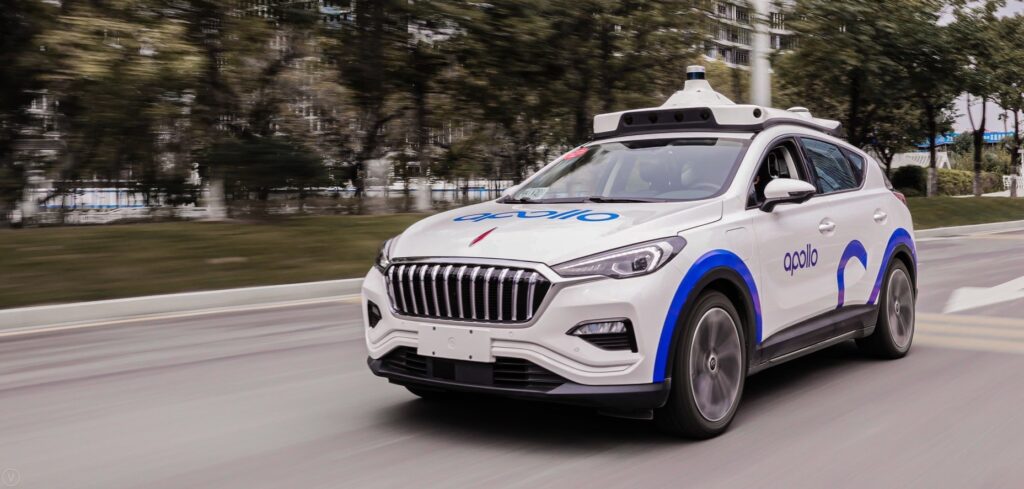Chinese internet search service Baidu has deployed a multi-modal autonomous driving MaaS (mobility as a service) platform to provide AI-driven city transportation services in Guangzhou, China. Utilizing a fleet of Apollo Robotaxis and Robobuses, along with three other model types of autonomous vehicles, it says the initiative will allow local users to order smart transportation services on demand, starting in the Chinese New Year holiday period.
Baidu has partnered with the Guangzhou Huangpu District government to roll out the multi-modal autonomous driving MaaS platform. By integrating an assortment of autonomous driving services to provide travel recommendations, the company claims its diverse platform can holistically optimize the traveling experience of users in line with combined platform strategies.
Comprising more than 40 autonomous vehicles, the fleet has deployed five different model types – Robotaxi, Robobus, Apolong, Apollocop and New Species Vehicle – to begin serving the city during the holiday period. Citizens of Guangzhou are able to make reservations on the Baidu Maps and Apollo Go mobile applications to access autonomous driving initiatives and experience the convenience enabled by intelligent transportation technology.
To facilitate this, Baidu Apollo has established over 50 Robotaxi pickup stations in the district, providing users with access to Chinese New Year festival sites. Simultaneously, a batch of New Species Vehicles are operating around the city, tasked with unmanned retail, as well as routine cleaning and disinfection. Apolong minibuses shuttle sightseers around scenic parks and lakes, while Apollocop patrols the main roads near key areas and the Baidu Robobuses ferry passengers along fixed routes.
The MaaS is supported by an intelligent network consisting of AI roadside infrastructure and a dynamic digital-twin cloud platform. Real-time signal light information such as stoplight countdowns, traffic event alerts and intersection queue length are broadcast on both the interactive monitors embedded in Robobus or Robotaxi cabins, as well as the exterior screens fixed on the rear of Robobuses. Additionally, users can utilize the Baidu Maps app or DuerOS-powered smart rearview mirrors to receive voice alerts of electronic fence monitoring, access signal light reminders, live traffic event venue broadcasting, and other connected online services.
The ACE Transportation Engine – a full-stack solution that stands for ‘Autonomous Driving, Connected Road, Efficient Mobility’ – has been introduced to improve the traffic flow around the district. A large ACE smart traffic electronic display has been set up on a prominent skyscraper to visually display the AI solutions at work, from the coordination of smart transportation for local commuters by the transportation bureau, to the intricate traffic management maintained by law enforcement.
Going forward, Baidu says it will continue conducting regular trial operations by additionally deploying over 100 Robotaxis and establishing almost 1,000 pickup stations in Guangzhou Huangpu District. This will allow local citizens to continue utilizing autonomous driving services in their daily lives, in lieu of similar Robotaxi programs implemented in Beijing, Changsha, Cangzhou and other areas of China.


